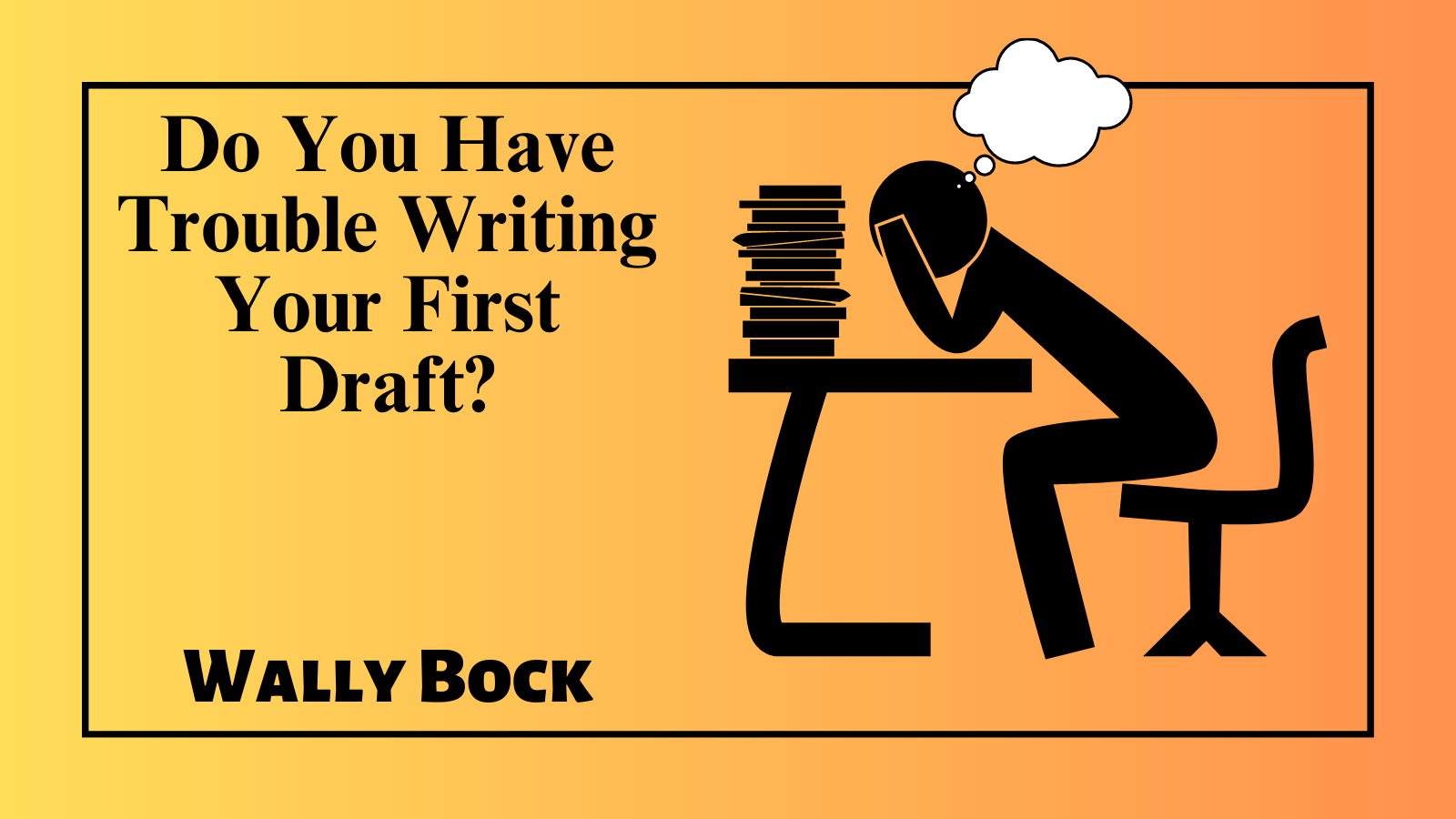Kerry isn’t his real name, but he had a real problem. He’d been thinking about writing his book for a couple of years and he had lots of ideas. He’d sit down to write his first draft and write for a bit then realize things weren’t going the way he thought they might and stop. Then he tried again starting from a different place.
He paid attention to getting it right. He paid attention to grammar and word choice and usage. Sometimes Kerry would realize that he needed a piece of information he didn’t have. So, he’d stop writing his first draft and find that piece of information.
Kerry isn’t the only person I’ve run into over the years that struggled to get their first draft right. First drafts are important. The first draft is where your book starts. No first draft, no book.
The Objective
The objective of the first draft is simple. Get everything out of your head and into a file or onto a page. Until you do that you have nothing to work with. Sounds simple. Why is it so hard?
Two Reasons Why First Drafts Are Hard
There are two reasons why first drafts are hard. The most powerful one is that your brain does not organize things the way your manuscript will.
When ideas are in your brain, they’re in a giant tangled mass. They’re connected to every other idea in your brain. That’s a good thing, but it can cause you trouble when you start to write. Your challenge is to take all those ideas and put them in order. That is much easier said than done.
The other reason first drafts are hard is that we’ve been trained to believe that we’ll be graded on them. Most of the things we’ve written going back to the time we were in school involved other people reading our work and commenting on it.
If you want to write a good first draft, you have to tell your inner English teacher to buzz off. Remember this, you don’t have to show what you write to anyone until you’re ready.
Now that you know that let’s explore some things that will make writing your first draft easy.
How to Make Your First Draft Easy
The easiest thing of all is not to start by writing the first draft. Start by writing a zero draft instead. The zero draft is the one that comes before the first draft.
When you start writing a book you don’t know what you don’t know about what you need. A zero draft will help you discover that, along with other important things. That’s why effective writers like Peter Drucker and Clay Christensen wrote zero drafts for their books.
How to Write the Zero Draft
Here’s how to write your zero draft. Expect a mess. You’re doing this to find out problems before they can wreck your project.
Make a rough outline of the key points you want to make or the key stories you want to tell. I said “rough” outline. Don’t put a lot of time into it because your zero draft is going to pressure test it.
Once you’ve got your list of key points/stories in order, start writing. Don’t worry about language, you can clean that up later. Don’t worry about punctuation and usage, you can clean that up later, too.
When you come to a spot where you discover you need a piece of information, keep going. You’ll get it before you start writing what will become the first draft. When you get to a spot where you don’t quite know what to say, make a note and keep going. Write the whole book.
When you’re done, you’ll have learned a lot. You’ve learned how your key points and stories work and whether you’ve got them in good working order. You’ve learned what research you need to do. You’ve probably gotten some good ideas that will make the book better.
What to Do with Your Zero Draft
At this point, you’ve got a drift you needn’t show to anyone. Here’s what you can do with it.
You can edit your zero draft into a first draft. This will work if you haven’t discovered too many major issues with your book.
It’s better to throw your zero draft away and start writing again. This time you won’t get all wrapped around your axle and you’ll have a good idea of how to proceed.
If you’re having trouble writing the first draft of your book, stop. Instead of that first draft, write a zero draft and you’ll probably write a better book.
Takeaways
No first draft, no book.
Your objective is to get everything out of your head and into a file or onto a page.
First drafts are hard because you must take the tangled mass of thoughts in your brain and turn them into linear prose.
First drafts are hard because we expect to be graded on them.
Write a zero draft instead.
A zero draft will spotlight what you don’t know.
A zero draft will point out places where you have structural issues.
You can edit your zero draft into a first draft. Keep the good and throw away the bad.
You can throw out your zero draft and write your first draft from scratch.
